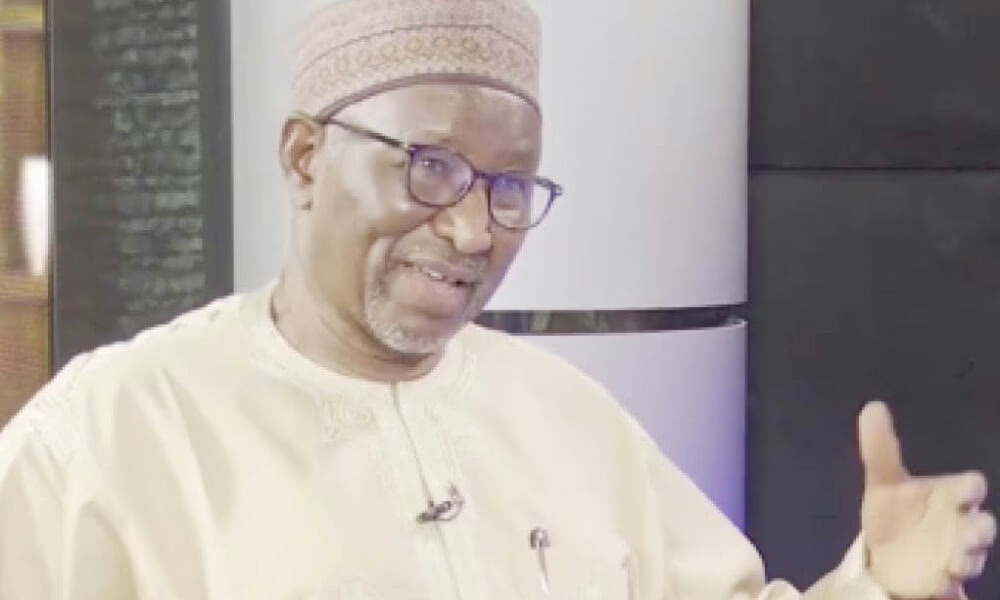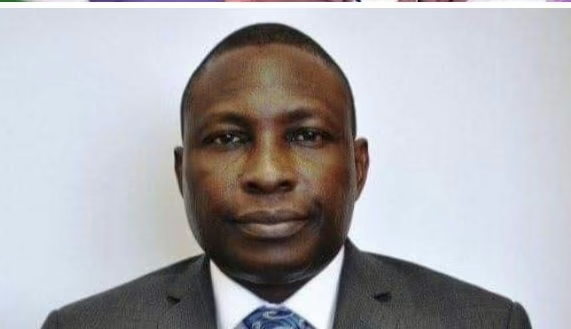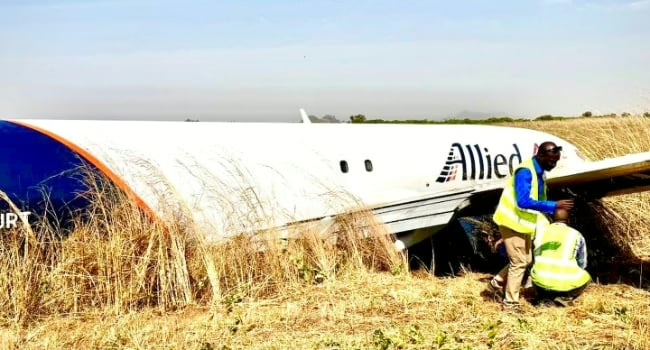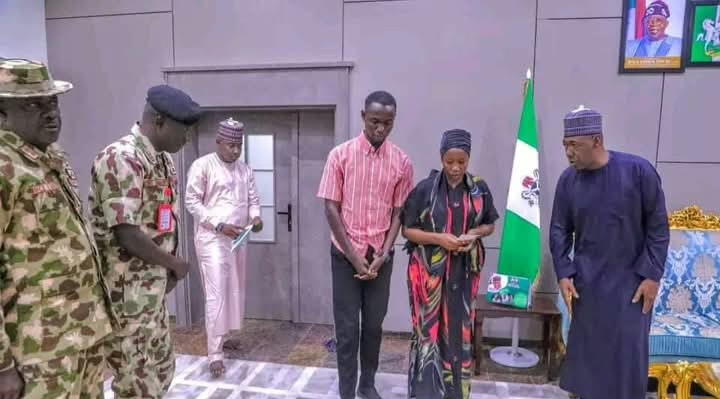By Lukman Olabiyi
Ayo Olanrewaju Kuyebi is a builder and project management consultant of many years. He is part of a seven-man technical committee inaugurated by the Lagos State Government to probe the recent collapse of a building under construction in Banana Island.
In this interview, Kuyebi who is the Chief Executive Officer of GMH Luxury, shares insight on how he transitioned from an employee to establishing a thriving real estate firm with prominent projects located in Ikoyi, Victoria Island, Lekki, Gbagada and among others.
He also speaks on why there is a high rate of building collapse in Nigeria and urges Nigerians to stop building on water channels.
How did you carve a niche in this aspect of the real estate business?
Simple. It is by placing a premium on experience. As you know, there is a popular saying that the level of your training will determine the level of your reign.
In 2006, I was given the opportunity to work in the bank as a teller but I rejected the offer. Instead, I joined an engineering firm for training purposes where I was not placed on any salary, but I walked away from a job where they would have been paying me over N200,000 naira at that time. For me, it’s all about experience, because I knew exactly what I wanted to achieve. To be the best, you have to learn from the best. I was a young engineer at the time and all I set out to achieve was to be one of the best to be reckoned with in the industry and that was the driving force.
To be very candid, I wasn’t born with a silver spoon. So I had to survive. I have been learning how to survive since I was nine years old.
What I did differently was that in the first company where I worked, I was being trained on how to design. There was a tutorial place close to the office. In the evening when I close by 5 pm, I would go to the tutorial for two hours. They would pay me 150 naira per hour and that was what I used to sustain myself with the little allowance I was getting from home.
After seven months, I was placed on a salary of N15,000 and I worked with the firm for two years. Later I left the company, to work with another company, which had a bit of structure. I just wanted to experience how structure works, because where I was coming from, we were the accountant, site clerk and storekeeper. I wanted to work in a company where we had site engineers and other professionals to ensure I stayed around and understood how a standard organisation operates, looking at the organisation’s organogram and all that. I worked with the firm for three years and to my surprise, when they interviewed me for the job, they placed me on a salary of 32 thousand naira weekly allowances and I rose from being a site engineer to Deputy Project Manager.
I was coordinating three projects at a time, one in Ilaje Bariga, Makoko and Agunlejika in the Cele area of Lagos and shuttled between these sites every day.
At those sites, they were constructing different structures at that time. So, after working for a group of companies for about one and a half years, I had the urge to experience how it feels to work in a multinational company. So, I applied, but the only available role was a trainee engineer. I accepted the offer but it was a massive pay cut for me. However, working with an organisation like that I experienced efficiency and specialisation at the highest level. In 2010, I pulled out to form a company called Geostruct Konsult Limited where we focused on piling works.
The reason I want to be in the building sector is the fact that people rarely get value for their money in the sector. The majority of people get their fingers burnt, you promise A and deliver Z.
At that time, piling was very complicated. The people doing it at that time didn’t have the technical prerequisite to undertake such projects and the rate of foundations failing at that time was alarming. I took it upon myself to venture into piling, promising myself to do something differently and ensure that every client got value for their money.
In 2010, the little money I gathered was around N570,000. I used it to start up a company called Jostrut Consult Limited. I put the money into the fabrication of what is called a dandle rig. It’s a small piling rig locally manufactured and when this was done I called on people, the operators, they are called triggers and they have many years of experience like me. So we formed a partnership on this project. By 2014, Jostrut Consult had grown to become a company with over N500 million in both equipment and cash in the bank.
At this present time, how can we harness productivity with talent and a good attitude, considering the current youths and the number of graduates we have at the moment, where most of them cannot work for free? All that you have said about career growth, are they still relevant for today’s youth?
The problem is that some people have talents with good attitudes while some have good attitudes without talent. It’s a big problem for employers.
Even the graduates that are being turned out yearly, are they employable? You still have to teach them to perform their duties. I think it is now our culture, mental laziness and sense of entitlement.
When I was growing up due to the nature of my background I did not expect anything from anyone, anything that I could not get on my own, I faced the music. I know what it takes to climb that pedestal. Anything I must get, I must earn it and go into self-development. I have worked on several projects Pro Bono (free of charge) because the first thing is to deliver value, thereafter, I can tell you what I am going to take.
The majority of the time you will be cheated, but one thing stands out, the experience you have garnered during the process, cannot be taken away from you.
I have worked for free in several places, not only in Alimosho. I have worked for free on Banana Island. If you want to give me work in Alimosho and Banana Island, I will consider the one in Banana Island, even if they are not going to pay me, because of the exposure and experience that I am going to gain there. To me, delayed gratification is access to experience, because the quality of materials that you will be exposed to when you work in Lekki is not the same as when you work in Alimosho or when you work somewhere in Ogun State.
Let me tell you, after turning down the job as a teller in the bank, they gave me the job of building a bungalow, I said that was not what I wanted. I wanted the ability to have the experience to build towers, to be able to put up 7-storey buildings and to know when to call in particular professionals on the job as at when due. It has always been my dream to provide shelter, giving people value for their money.
I can say to you that we are the first development company in Lagos to have an apartment building on the mainland in Gbagada and we sold it out, even against all the feasibility studies.
Real estate is a risk, how do people key into this, particularly people with low income?
Self-development emergencies are created by laxity as a result of laziness. I want to go to Ajah and I am in Agege, and I faced Abeokuta, how am I going to end up in Ajah? Whatever you want to do, it has to come with a plan and purpose, you have to set your goals. The majority of my mates who went into the banking sector lost their jobs in 2008 when there was a crisis in the sector. They had nothing to fall back on after two years, they were well-paid during those two years, but they left with no experience. I had a plan and purpose that was why I forfeited the banking industry for real estate. I am very frugal when it comes to money management.
I have a portfolio of over N30 billion, you cannot see me with any escorts; it is not that I can’t afford escorts but it’s not a priority. Everything I have to do, I have to set out a time and put a timeline for it.
If you earn an income of N90,000 and have a dream of owning a building one day, what are you doing with your N90,000 and what value are you adding to it?
They call a seminar of N5000 you cannot attend, they call for a financial freedom seminar you cannot attend, how much are you investing in self-development because a mental picture of what you don’t have in your mind you can never live in it. It starts with the mindset.
When I gave birth to GMH Luxury, I was at a site in Ilaje Bariga. At that time, I didn’t even have N300,000 in my savings account but I wrote it down that by 2014, I would start my development firm. Though I could not start in 2014, I started in 2015 by buying land worth over N40 million.
So, how was I able to manage the rigour? It is a service mentality, a mentality of rendering excellent service. When you have such a mentality, money will chase you. I have never seen anyone that chases money and makes money, but when you chase excellent service money naturally comes to you.
What I did differently when I started my own company was that if you call me for piling, what I will do is educate you on how you can do a soft check on your project site. I will explain to you what to look out for when you get to the site. I will give you a cost implication to that effect and I will give all the information you need, even as a layman for you know.
We have witnessed several cases of building collapse in Lagos and Nigeria. There has been an infiltration by non-professionals into property development. But you have been able to distinguish yourself. What is your secret?
I will tell you this: I have failed before. I will say yes because failure inspires winners and deceives losers. In my career progression, I suffered a fatal failure where I lost a lot of money. I had to demolish 11 units of terrace houses in Magodo due to construction on the major canal. The canal lane was blocked. If you know Magodo and Magodo Brooks, what separates the two is a canal. Some people said it’s land and they blocked the canal and our project was at the receiving end. Because I know the force of nature, and how water behaves, we had an option whether to pull down the building or to ensure the canal stays. And since we don’t have control over the canal, we pulled down the buildings; in the process, we lost about N370 million. We lost the money but none of our investors lost because we relocated some and refunded some. Truth hurts, but we are not going to deliver a project that cannot stand the test of time.
We will not pass on a project that would not last, we would rather cancel it.
And in the cause of our eight years of running, we have had to cancel two projects as a result of environmental and foundation failures.
These are the reasons we have incessant collapse of buildings because they are trying to patch it up and mend it; nobody is going to give you what they don’t have.
And as far as building collapses are concerned, if you look at the collapse in recent times, it follows the same pattern.
Gone are those days when there was housing collapse only in the rainy season, now we have multiple structure housing collapse.
It’s the high level of quacks allowed into the building profession that is bringing about the collapse. You have instances of an accountant wanting to be an engineer.
It seems you have built trust. How has that paid off for you?
Some people would have sold the structure instead of pulling it down. Trust has taken us this far, it has paid off. How can you grow from N570,000 in 2010 to having a portfolio of over N30 billion in 13 years? That can only happen with trust and impeccable reputation. It has to be on the foundation of empathy. For instance, in 2020 I started a project. COVID-19 came in, naira devaluation and then inflation. When I finished, I went back to the subscribers. I told them, there was no way what they previously paid could finish the project. So, I added a certain percentage based on the economic realities and they paid because we didn’t cut corners.
Nigeria has a severe housing deficit. Real estate development has been associated with the issue of money laundering. What is your take on this?
Combating corruption and money laundering through real estate is a complex system. What we do is to ensure that we receive money through appropriate channels. If you want to buy into our project you have to pay through a legal and transparent manner. With us, there are legal ways of making payment, anything beyond that we will not get involved.
Going into the housing deficit, the gap is huge, we have seen what India was able to do from 2017 to 2022. They were able to deliver over 17 million housing units and how did they do it? By giving subsidized loans to their citizens, the same thing was done in Brazil in 2009, and even South Africa did the same thing.
How can real estate be cheap when the facility available to the real estate developer, even the private investors, is at 30 per cent and can it be cheap when the cost of approval is growing?
We also have a massive naira devaluation and 90 per cent of finishing materials for real estate are imported.
And the current dollar rate is nothing to write home about, so it is a sector that the government needs to pay attention to. The infrastructure available at the moment is overstretched. So, the government needs to create new towns and consider the population, because there is no provision for population expansion.











